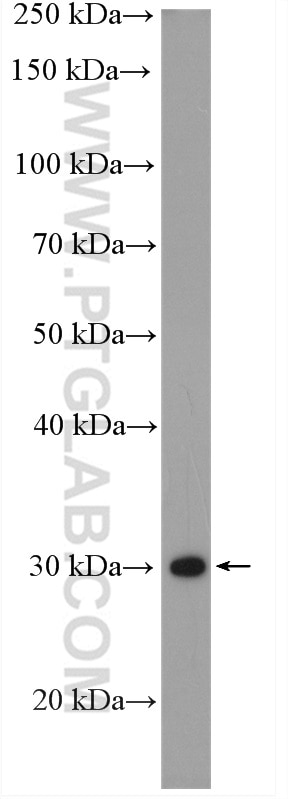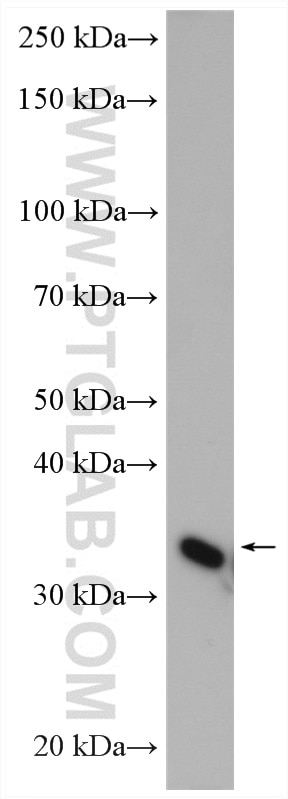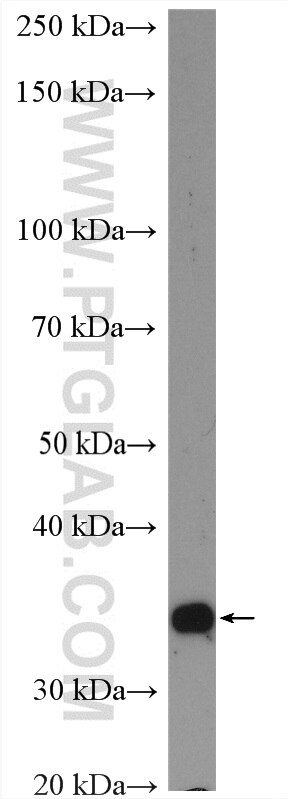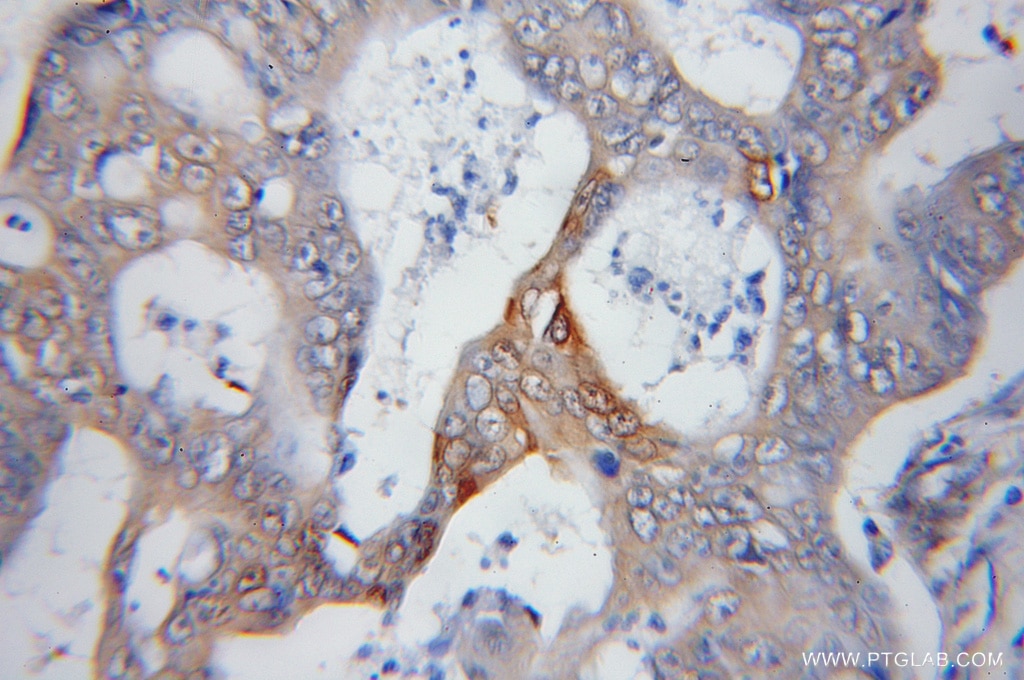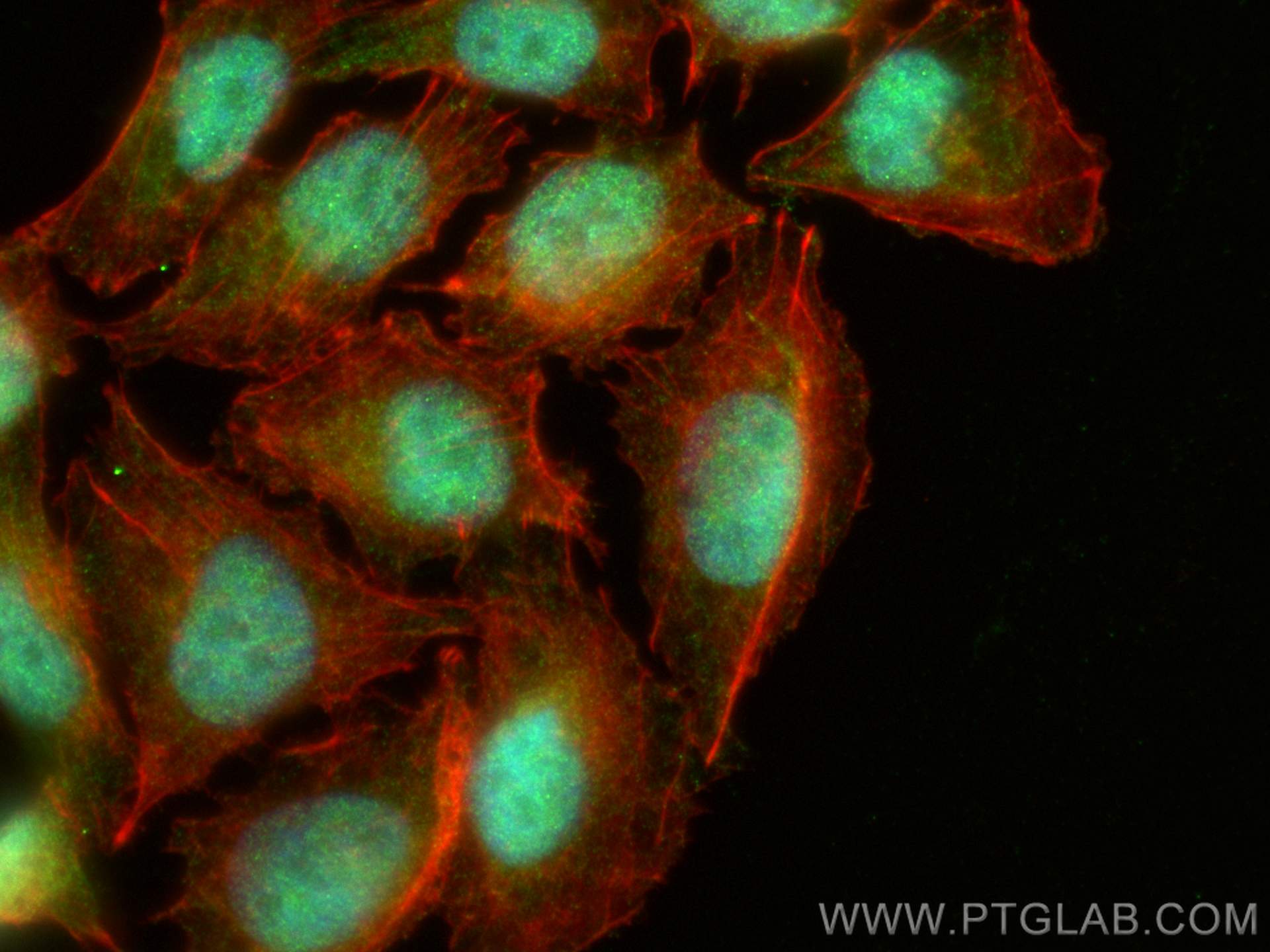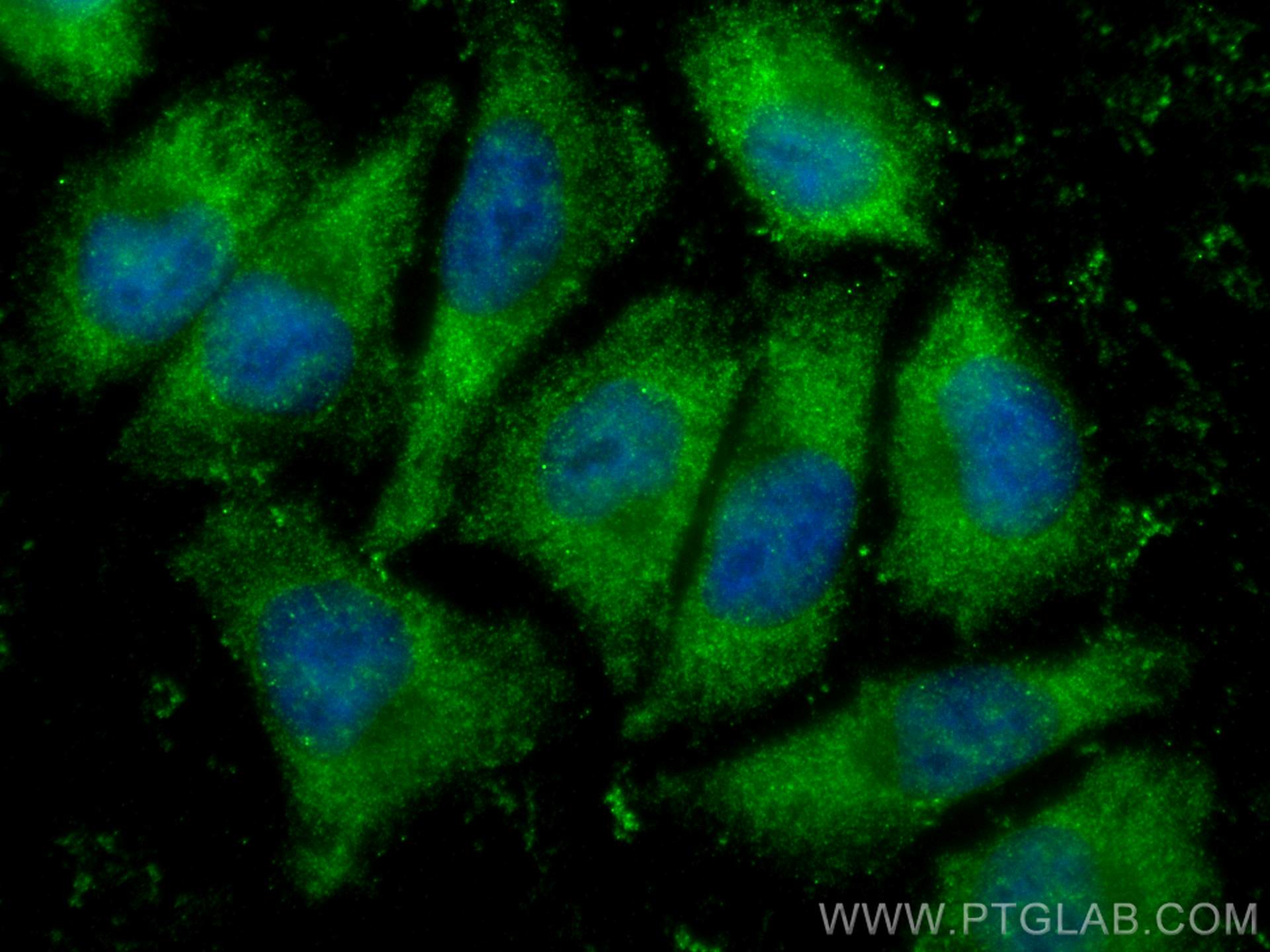- Featured Product
- KD/KO Validated
PSMD14/POH1 Polyklonaler Antikörper
PSMD14/POH1 Polyklonal Antikörper für WB, IHC, IF/ICC, ELISA
Wirt / Isotyp
Kaninchen / IgG
Getestete Reaktivität
human, Maus, Ratte
Anwendung
WB, IHC, IF/ICC, ELISA
Konjugation
Unkonjugiert
Kat-Nr. : 12059-1-AP
Synonyme
Galerie der Validierungsdaten
Geprüfte Anwendungen
| Erfolgreiche Detektion in WB | A431-Zellen, K-562-Zellen, Rattenherzgewebe |
| Erfolgreiche Detektion in IHC | humanes Kolonkarzinomgewebe Hinweis: Antigendemaskierung mit TE-Puffer pH 9,0 empfohlen. (*) Wahlweise kann die Antigendemaskierung auch mit Citratpuffer pH 6,0 erfolgen. |
| Erfolgreiche Detektion in IF/ICC | A375-Zellen |
Empfohlene Verdünnung
| Anwendung | Verdünnung |
|---|---|
| Western Blot (WB) | WB : 1:500-1:1000 |
| Immunhistochemie (IHC) | IHC : 1:20-1:200 |
| Immunfluoreszenz (IF)/ICC | IF/ICC : 1:200-1:800 |
| It is recommended that this reagent should be titrated in each testing system to obtain optimal results. | |
| Sample-dependent, check data in validation data gallery | |
Veröffentlichte Anwendungen
| KD/KO | See 6 publications below |
| WB | See 11 publications below |
| IHC | See 5 publications below |
| IF | See 3 publications below |
Produktinformation
12059-1-AP bindet in WB, IHC, IF/ICC, ELISA PSMD14/POH1 und zeigt Reaktivität mit human, Maus, Ratten
| Getestete Reaktivität | human, Maus, Ratte |
| In Publikationen genannte Reaktivität | human |
| Wirt / Isotyp | Kaninchen / IgG |
| Klonalität | Polyklonal |
| Typ | Antikörper |
| Immunogen | PSMD14/POH1 fusion protein Ag2694 |
| Vollständiger Name | proteasome (prosome, macropain) 26S subunit, non-ATPase, 14 |
| Berechnetes Molekulargewicht | 35 kDa |
| Beobachtetes Molekulargewicht | 35 kDa |
| GenBank-Zugangsnummer | BC009524 |
| Gene symbol | PSMD14 |
| Gene ID (NCBI) | 10213 |
| Konjugation | Unkonjugiert |
| Form | Liquid |
| Reinigungsmethode | Antigen-Affinitätsreinigung |
| Lagerungspuffer | PBS mit 0.02% Natriumazid und 50% Glycerin pH 7.3. |
| Lagerungsbedingungen | Bei -20°C lagern. Nach dem Versand ein Jahr lang stabil Aliquotieren ist bei -20oC Lagerung nicht notwendig. 20ul Größen enthalten 0,1% BSA. |
Hintergrundinformationen
The PSMD14 (POH1, also known as Rpn11/MPR1/S13/CepP1) protein is a metalloprotease component of the 26S proteasome that specifically cleaves 'Lys-63'-linked polyubiquitin chains. The 26S proteasome is involved in the ATP-dependent degradation of ubiquitinated proteins. PSMD14 is highly expressed in the heart and skeletal muscle. In carcinoma cell lines. down-regulation of PSMD14 by siRNA transfection had a considerable impact on cell viability causing cell arrest in the G0-G1 phase, ultimately leading to senescence.
Protokolle
| Produktspezifische Protokolle | |
|---|---|
| WB protocol for PSMD14/POH1 antibody 12059-1-AP | Protokoll herunterladen |
| IHC protocol for PSMD14/POH1 antibody 12059-1-AP | Protokoll herunterladen |
| IF protocol for PSMD14/POH1 antibody 12059-1-AP | Protokoll herunterladen |
| Standard-Protokolle | |
|---|---|
| Klicken Sie hier, um unsere Standardprotokolle anzuzeigen |
Publikationen
| Species | Application | Title |
|---|---|---|
Sci Transl Med Neutrophil extracellular traps, B cells, and type I interferons contribute to immune dysregulation in hidradenitis suppurativa. | ||
Nat Commun POH1 deubiquitylates and stabilizes E2F1 to promote tumour formation.
| ||
Theranostics Blockade of deubiquitinating enzyme PSMD14 overcomes chemoresistance in head and neck squamous cell carcinoma by antagonizing E2F1/Akt/SOX2-mediated stemness.
| ||
Theranostics The PSMD14 inhibitor Thiolutin as a novel therapeutic approach for esophageal squamous cell carcinoma through facilitating SNAIL degradation. | ||
Clin Transl Med MAFG-AS1 promotes tumor progression via regulation of the HuR/PTBP1 axis in bladder urothelial carcinoma.
| ||
Oncogene The degradation of p53 and its major E3 ligase Mdm2 is differentially dependent on the proteasomal ubiquitin receptor S5a. |
